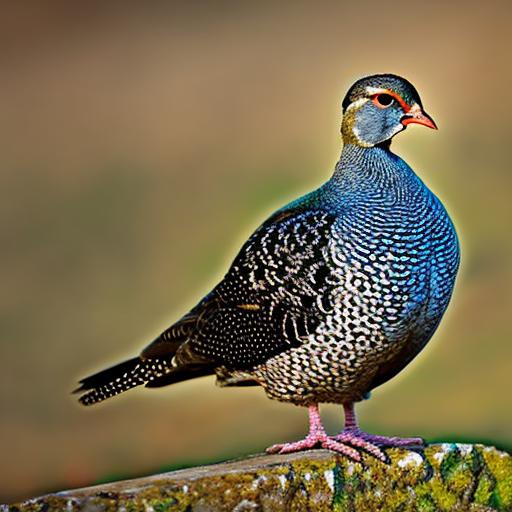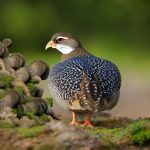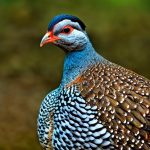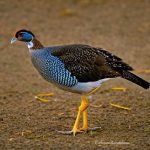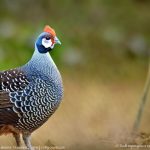Guinea fowl, also known as pintades, are a unique and fascinating addition to any poultry flock. These birds are native to Africa but have been domesticated and are now commonly kept for their meat, eggs, and pest control abilities. Guinea fowl are known for their distinctive appearance, with speckled feathers and a helmet-like bony structure on their heads. They are also known for their loud and distinctive calls, which can serve as a natural alarm system on a farm. Guinea fowl are hardy and adaptable birds that can thrive in a variety of climates, making them a popular choice for small-scale farmers and homesteaders.
Guinea fowl are excellent foragers and can help control insect populations on a farm, making them a valuable addition to any agricultural operation. They are also relatively low-maintenance birds, requiring minimal care and attention compared to other poultry species. However, guinea fowl can be quite noisy and may not be suitable for urban or suburban settings. Additionally, they can be skittish and difficult to handle, so they may not be the best choice for beginners or those looking for a docile pet bird. Overall, guinea fowl are an interesting and beneficial addition to a farm or homestead, but they require careful consideration and planning before bringing them into your flock.
Key Takeaways
- Guinea fowl are hardy and low-maintenance birds that are great for pest control and as a source of meat and eggs.
- When housing guinea fowl, provide a secure coop with roosting bars and nesting boxes, as well as access to a large outdoor area for foraging.
- Guinea fowl have specific dietary needs and should be fed a balanced diet of game bird feed, supplemented with greens and insects.
- Regular health checks and protection from predators are essential for keeping guinea fowl healthy and safe.
- Guinea fowl are social birds that thrive in a flock environment, but they can be noisy and may not mix well with other poultry.
Housing and Accommodations
When it comes to housing guinea fowl, there are a few key considerations to keep in mind. First and foremost, guinea fowl require a secure and predator-proof coop or housing structure to keep them safe from potential threats. This can include predators such as foxes, raccoons, and birds of prey. The coop should also provide protection from the elements, with adequate ventilation and insulation to keep the birds comfortable in all weather conditions. Additionally, guinea fowl are known for their roosting behavior, so providing ample roosting space within the coop is essential for their well-being.
In addition to a secure coop, guinea fowl also require access to outdoor space for foraging and exercise. A fenced-in yard or pasture area is ideal for allowing the birds to roam freely while still keeping them safe from predators. Guinea fowl are excellent foragers and will spend much of their time searching for insects and other small prey, so providing access to a diverse range of vegetation and open space is important for their overall health and well-being. Overall, providing a safe and comfortable housing environment for guinea fowl is essential for their long-term health and happiness.
Feeding and Nutrition
Guinea fowl are primarily insectivorous birds, meaning they thrive on a diet of insects, worms, and other small prey. In addition to their natural foraging habits, guinea fowl can also be supplemented with a commercial poultry feed that is specifically formulated for game birds or poultry. This feed should contain a balanced mix of protein, vitamins, and minerals to support the birds’ overall health and well-being. Additionally, providing access to grit or small stones can help guinea fowl properly digest their food, as they do not have teeth and rely on the stones to grind up their food in their gizzards.
In addition to their main diet of insects and commercial feed, guinea fowl can also benefit from supplemental treats such as fruits, vegetables, and grains. These treats can provide additional nutrients and variety to the birds’ diet, as well as serve as enrichment for their mental and physical well-being. It’s important to monitor the birds’ overall body condition and adjust their diet as needed to ensure they are receiving adequate nutrition. Overall, providing a balanced diet that includes a mix of insects, commercial feed, and supplemental treats is essential for keeping guinea fowl healthy and thriving.
Health and Care
Guinea fowl are generally hardy birds that require minimal care compared to other poultry species. However, there are still some key health considerations to keep in mind when raising guinea fowl. Like all poultry, guinea fowl are susceptible to common diseases such as coccidiosis, respiratory infections, and parasites. It’s important to monitor the birds for any signs of illness or distress and seek veterinary care if needed. Additionally, providing a clean and dry living environment can help prevent many common health issues in guinea fowl.
In terms of general care, guinea fowl require regular access to clean water for drinking and bathing. They also benefit from regular dust baths to help keep their feathers clean and free from parasites. Providing access to a dust bath area with fine sand or dirt can help meet this need. Additionally, regular grooming and inspection of the birds’ feathers can help prevent issues such as mites or lice infestations. Overall, providing attentive care and monitoring the birds’ health is essential for keeping guinea fowl happy and healthy.
Behavior and Social Structure
Guinea fowl are social birds that thrive in small flocks. They have a complex social structure with established hierarchies within the group. This social structure can lead to aggressive behavior between birds, particularly during mating season or when establishing pecking order within the flock. It’s important to provide ample space and resources within the flock to help minimize aggression and ensure the well-being of all birds.
Guinea fowl are also known for their loud and distinctive calls, which serve as a form of communication within the flock. These calls can be quite noisy and may not be suitable for all environments. Additionally, guinea fowl are known for their alert and vigilant nature, making them excellent natural alarm systems on a farm or homestead. Overall, understanding the social behavior of guinea fowl is essential for providing a harmonious living environment for these unique birds.
Breeding and Reproduction
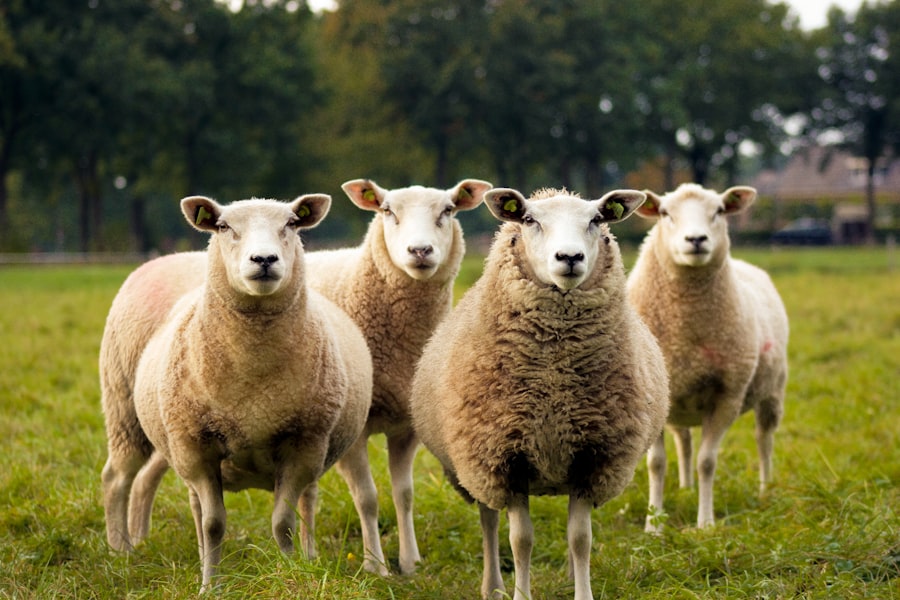
Breeding guinea fowl can be a rewarding but challenging endeavor. Guinea fowl are seasonal breeders, typically mating in the spring and early summer months. During this time, males will display elaborate courtship behaviors to attract females. Once a pair has formed, the female will lay a clutch of eggs in a hidden nest site on the ground. It’s important to provide a quiet and secluded area for nesting to help ensure the safety of the eggs.
After an incubation period of around 26-28 days, the eggs will hatch, and the chicks will begin their journey into the world. Guinea fowl chicks are precocial, meaning they are born with their eyes open and are able to walk shortly after hatching. However, they still require attentive care from their parents or caregivers to ensure they stay warm and safe during their early days. Overall, breeding guinea fowl requires careful planning and attention to ensure the success of the process.
Pros and Cons of Keeping Guinea Fowl
In conclusion, keeping guinea fowl can be a rewarding experience for those looking to add an interesting and beneficial bird species to their farm or homestead. Guinea fowl are excellent foragers that can help control insect populations while also serving as natural alarm systems with their loud calls. They are hardy and adaptable birds that require minimal care compared to other poultry species. However, it’s important to consider the potential downsides of keeping guinea fowl, such as their noisy nature and skittish behavior. Additionally, breeding guinea fowl can be challenging and requires careful planning and attention to ensure success.
Overall, guinea fowl are an intriguing addition to any poultry flock but require careful consideration before bringing them into your care. With proper housing, feeding, health care, understanding of behavior, breeding knowledge, these unique birds can thrive on your farm or homestead while providing valuable benefits to your agricultural operation.
If you’re considering keeping guinea fowl, you may also be interested in learning about whether guinea fowl can live with chickens. This article on PoultryWizard.com explores the dynamics of keeping guinea fowl and chickens together, offering valuable insights for anyone looking to raise both species. Check out the article here to discover more about this fascinating topic.
FAQs
Are guinea fowl easy to keep?
Guinea fowl are generally considered to be easy to keep, as they are hardy birds that require minimal maintenance.
What kind of housing do guinea fowl need?
Guinea fowl require a secure and predator-proof housing, such as a coop or a sheltered area with roosting poles. They also need access to a large outdoor area for foraging.
What do guinea fowl eat?
Guinea fowl are primarily insectivores and forage for insects, seeds, and plants. They can also be supplemented with commercial poultry feed.
Do guinea fowl require special care or attention?
Guinea fowl are relatively low-maintenance birds and do not require special care or attention. However, they do need access to clean water and regular monitoring for signs of illness.
Are guinea fowl noisy?
Guinea fowl are known for their loud calls and can be noisy, especially when they feel threatened or during mating season.
Do guinea fowl get along with other poultry?
Guinea fowl can be kept with other poultry, but they may be aggressive towards smaller birds such as chickens. It is important to monitor their interactions and provide enough space for all the birds.
Meet Walter, the feathered-friend fanatic of Florida! Nestled in the sunshine state, Walter struts through life with his feathered companions, clucking his way to happiness. With a coop that’s fancier than a five-star hotel, he’s the Don Juan of the chicken world. When he’s not teaching his hens to do the cha-cha, you’ll find him in a heated debate with his prized rooster, Sir Clucks-a-Lot. Walter’s poultry passion is no yolk; he’s the sunny-side-up guy you never knew you needed in your flock of friends!

